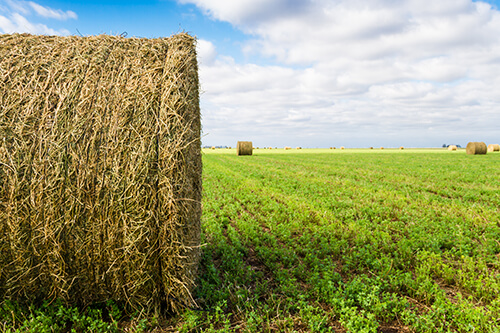Round-Up Ready Alfalfa Wins!
Aug 03, 2020

Alfalfa is gaining popularity as a forage, especially Round-Up Ready Alfalfa, because of the feed value per pound. Late August is a great time to establish. It can be challenging, but if you follow some very simple steps it can be a winner!
Follow these important steps and you can make alfalfa a winner for you! For more information, contact your local Co-op or Co-op Agronomist.
- Choose the right location.
- Soil Test! Soil Test! Soil Test!
- Planting depth is critical.
- Fertilize by soil test.
- Apply Round-Up or Cornerstone to control weeds.
Follow these important steps and you can make alfalfa a winner for you! For more information, contact your local Co-op or Co-op Agronomist.